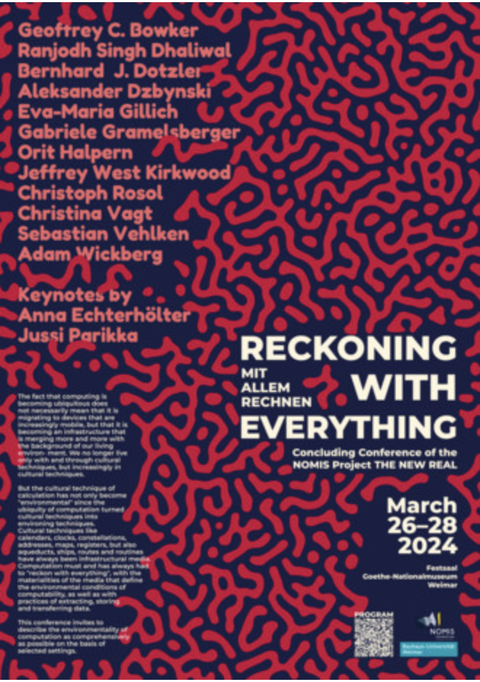Mar 25, 2024
Orit Halpern @ Bauhaus Universität Weimar on March 26 'The Planetary Experiment"
The fact that computing is becoming ubiquitous does not necessarily mean that it is migrating to devices that are increasingly mobile, but that it is becoming an infrastructure that is merging more and more with the background of our living environment. We no longer live only with and through cultural techniques, but increasingly in cultural techniques.
But the cultural technique of calculation has not only become "environmental" since the ubiquity of computation turned cultural techniques into environing techniques. Cultural techniques like Calendars, clocks, constellations, addresses, maps, registers, but also aqueducts, ships, routes and routines have always been infrastructural media. Computation must and has always had to "reckon with everything", with the materialities of the media that define the environmental conditions of computability, as well as with practices of extracting, storing and transferring data.
This conference invites to describe the environmentality of computation as comprehensively as possible on the basis of selected settings.

